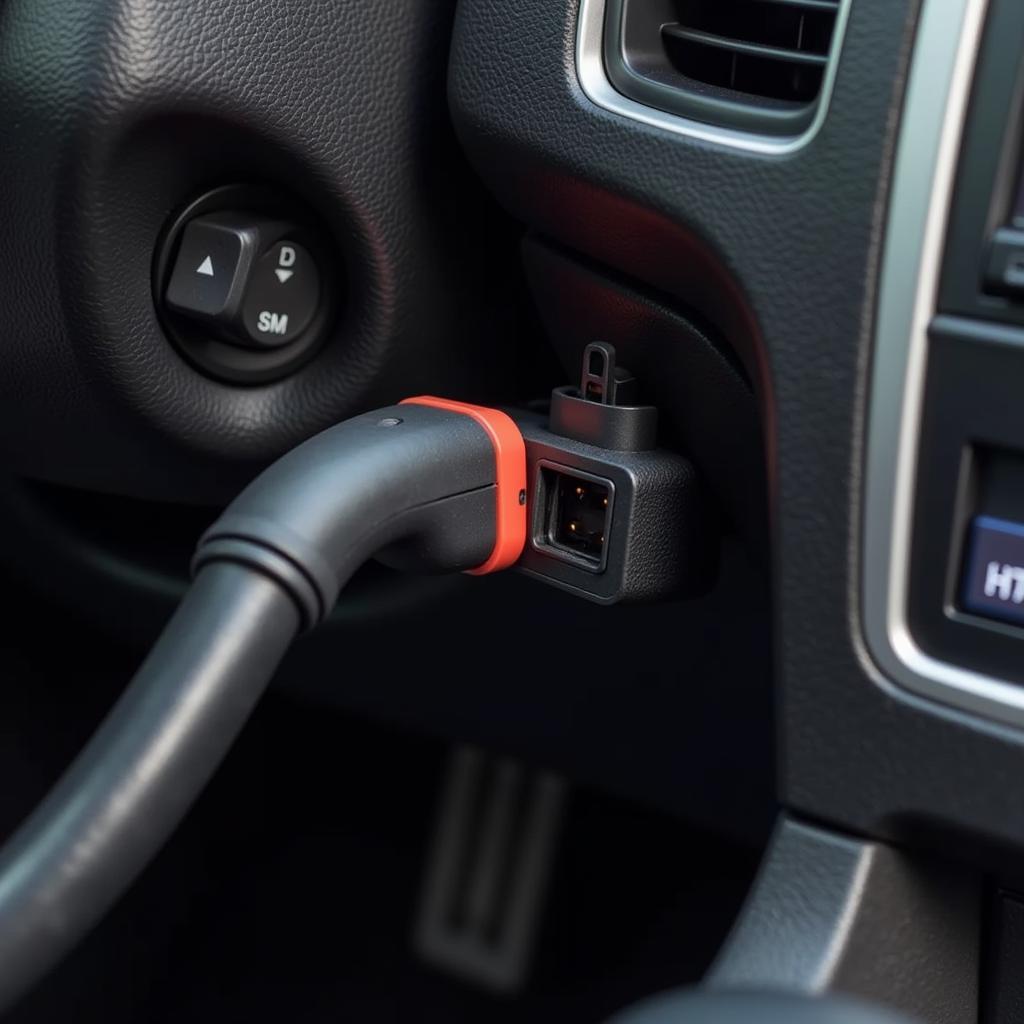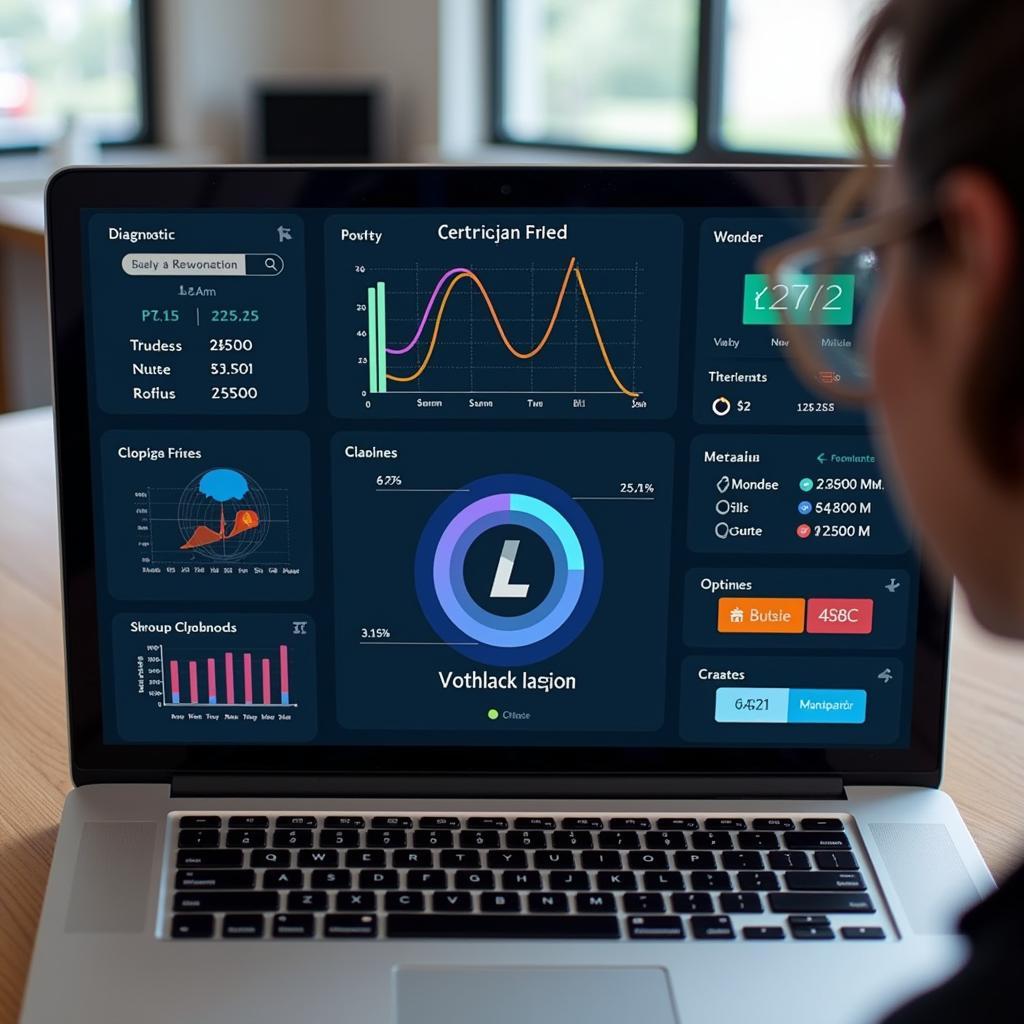The world of car repair has evolved significantly, with technology playing a crucial role in identifying and resolving automotive issues. When facing car troubles, “car diagnostic tool” and “car diagnostic software” are terms you’ll likely encounter. But what do they mean, and which is right for you? This article dives into the distinctions between these essential tools, empowering you to make informed decisions about your car maintenance.
Understanding the Basics: Definitions and Applications
Before comparing, let’s define these tools:
-
Car Diagnostic Tool: This is a physical device, often handheld, that connects to your car’s onboard computer system (OBD-II port) to retrieve diagnostic trouble codes (DTCs) and other vehicle data. Think of it as a specialized computer that communicates directly with your car’s brain.
-
Car Diagnostic Software: This is a program installed on a computer, smartphone, or tablet, working in conjunction with a car diagnostic tool (either wired or wireless) to interpret the data received from your vehicle. It translates raw codes into understandable language, provides potential problem explanations, and may even suggest repair solutions.
In essence, the tool retrieves the information, and the software makes sense of it.
 Car Diagnostic Tool Connected to OBD2 Port
Car Diagnostic Tool Connected to OBD2 Port
Car Diagnostic Tools: A Closer Look
Car diagnostic tools come in various forms, each catering to different needs and budgets:
-
Basic Code Readers: These entry-level tools display DTCs, offering a starting point for troubleshooting.
-
OBD2 Scanners: More advanced than code readers, these tools provide live data streams, allowing you to monitor various engine parameters in real time.
-
Professional-Grade Scan Tools: Used by mechanics and advanced DIYers, these tools offer comprehensive functionality, including advanced diagnostics, programming capabilities, and bi-directional control over vehicle systems.
Choosing the right tool depends on your expertise and the complexity of the task at hand.
Car Diagnostic Software: Decoding the Digital Realm
Car diagnostic software expands the capabilities of your diagnostic tool, offering a user-friendly interface to interpret and utilize the data:
-
Code Definitions and Troubleshooting: Easily understand DTC meanings and access potential causes and repair guidance.
-
Live Data Monitoring: Visualize real-time engine performance data through graphs and charts, helping pinpoint issues.
-
Customization and Advanced Features: Some software offers vehicle-specific diagnostics, maintenance schedules, and report generation.
 Car Diagnostic Software Interface on Laptop
Car Diagnostic Software Interface on Laptop
Making the Choice: Factors to Consider
Deciding between a car diagnostic tool and software depends on your needs:
-
Frequency of Use: Occasional users might find basic code readers sufficient. Frequent DIYers or professionals benefit from more advanced tools and software combinations.
-
Technical Proficiency: If you’re comfortable with technology, advanced software unlocks powerful diagnostic capabilities. Less tech-savvy individuals might prefer user-friendly, intuitive software.
-
Budget: Costs vary widely, from affordable code readers to professional-grade tools and subscriptions for advanced software.
Integrating Tools and Software for Optimal Results
While some tools offer standalone functionality, the real power lies in combining a suitable tool with compatible software. This synergy unlocks comprehensive diagnostics, turning raw data into actionable insights.
free obd car diagnostic software
Expert Insight
“Choosing the right car diagnostic tools and software can be overwhelming,” says John Miller, a seasoned automotive engineer. “Consider your specific needs, budget, and technical comfort level. Remember, a well-informed car owner is better equipped to tackle any automotive challenge.”
Conclusion: Empowering Car Owners Through Technology
Understanding the difference between car diagnostic tools and software is crucial for any car owner. Whether you’re a seasoned DIYer or simply want to be more informed about your vehicle’s health, selecting the right tools empowers you to take control of your car maintenance. By investing in the right technology, you’ll be equipped to diagnose issues accurately and efficiently, potentially saving time and money on costly repairs.
FAQs:
-
Do I need both a tool and software to diagnose car problems?
- While some tools offer basic standalone functionality, combining a tool with compatible software significantly enhances diagnostic capabilities.
-
Can I use any software with any diagnostic tool?
- Not necessarily. Software compatibility varies, so ensure the software you choose supports your specific diagnostic tool.
-
Is it worth investing in professional-grade tools and software for home use?
- This depends on your frequency of use, technical proficiency, and budget. For most car owners, a mid-range tool and software combination offer a good balance of features and affordability.
-
Can these tools and software diagnose all car problems?
- While they cover a wide range of issues, certain complex problems may still require professional diagnosis and repair.
-
Are there free car diagnostic software options available?
- Yes, some free basic software options exist, but they may have limited features compared to paid versions.
free car diagnostic software download
Common Car Diagnostic Scenarios
-
Check Engine Light On: A diagnostic tool and software can pinpoint the reason for the warning light, ranging from a loose gas cap to a faulty oxygen sensor.
-
Poor Fuel Economy: Live data monitoring can help identify issues like a clogged air filter or malfunctioning fuel injectors that contribute to decreased fuel efficiency.
-
Engine Misfires: Tools and software can identify misfiring cylinders, allowing you to address issues like faulty spark plugs or ignition coils.
Explore Further:
Need help with car diagnostics? Contact us via WhatsApp: +1(641)206-8880, or email: [email protected]. Our 24/7 customer support team is here to assist you.

Leave a Reply